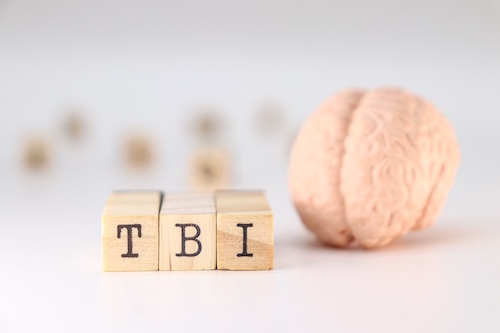- Personal Injury
Founder of Wade Law and expert trial attorney with experience in the courts and in the classroom, lecturing in several courses. Admitted to all of Georgia’s courts and the United States Supreme Court
Understanding Brain Injury Claims in Georgia: What You Need to Know
A traumatic brain injury can change a life in seconds. From car accidents to falls, these injuries often come with serious medical expenses, lost income, and long-term effects. In Georgia, brain injury claims require clear evidence, quick action, and knowledge of state laws. If you or a loved one has suffered a brain injury, knowing your legal options is the first step.
A Fayetteville brain injury lawyer can help protect your rights and fight for the compensation you deserve.
What Is a Traumatic Brain Injury (TBI)?
A traumatic brain injury affects how the brain functions. It often results from a sudden impact, blow, or jolt to the head. Brain injury claims rely on accurate diagnosis and clear medical documentation.
Mild vs. Severe Traumatic Brain Injuries
Mild traumatic brain injuries (mTBI), such as a mild concussion, may cause temporary confusion, headache, or dizziness. In some cases, symptoms are subtle and appear hours or days later. Severe traumatic brain injuries involve loss of consciousness, bleeding in the brain, or long-term disability. These injuries may require extensive medical treatment and ongoing care.
Types of Brain Injuries
There are different types of TBIs. A closed head injury occurs when the brain is injured without any penetration of the skull. Diffuse axonal injury happens when the brain moves inside the skull, tearing nerve fibers. Axonal injuries often result in serious damage to brain tissue and may cause permanent impairment. These forms of injury often appear in car accidents or sports injuries.
Common Symptoms to Watch For
Symptoms of a traumatic brain injury include headache, confusion, nausea, fatigue, and memory problems. Severe cases may lead to slurred speech, seizures, or personality changes. Emotional distress is also common. Seeking immediate medical attention is important. Medical records are essential for brain injury claims.
The Importance of Medical Documentation
Medical documentation supports a brain injury claim. Diagnosis from medical professionals, imaging tests, and hospital records provide the evidence needed. These documents help a Fayetteville brain injury lawyer prove the full extent of the injury and estimate future medical expenses.
How Brain Injuries Affect Daily Life
Traumatic brain injuries can affect every part of life. An injured person may lose income, struggle with daily tasks, or require future medical care. Even a mild TBI can cause lasting problems. In personal injury cases, these effects must be fully accounted for to pursue fair compensation.
Common Causes of Brain Injuries in Georgia Personal Injury Cases
Brain injuries can happen in many types of accidents. Identifying the cause is important for building a strong brain injury claim.
Motor Vehicle Accidents
Car accidents are a leading cause of traumatic brain injuries in Georgia. A sudden impact can cause the brain to strike the inside of the skull. This can result in a mild TBI or a severe brain injury that requires ongoing medical treatment. Motor vehicle accidents often involve insurance coverage issues that a Fayetteville brain injury attorney can handle.
Falls and Slips
Falls from heights, wet floors, or unsafe walkways can lead to serious head injuries. These accidents often cause closed head injuries or concussions. Older adults and construction workers face a higher risk. Injury claims based on falls must include medical records and accident reports to prove negligence.
Workplace Accidents
Brain injuries at work may come from falling objects, machinery accidents, or slip and falls. Some jobs carry a higher risk due to equipment or work conditions. If the injury happened on the job, the case may involve both workers’ compensation and a personal injury claim.
Sports Injuries
Athletes, especially in contact sports, face a high risk of mild traumatic brain injuries and concussions. Repeated head impacts can lead to long-term damage. Medical professionals often diagnose these injuries after symptoms appear. Sports injury claims must show the injury was preventable or due to unsafe conditions.
Physical Assaults
Violent assaults can cause blunt force trauma to the head. This may result in diffuse axonal injury or bleeding in the brain. Personal injury law in Georgia allows victims of assault to seek compensation if another party was negligent in providing safety or security.
Medical Malpractice and Other Causes
Errors during surgery, failure to monitor oxygen levels, or birth complications may also lead to brain injury. These cases often involve acquired brain injuries rather than traumatic ones. A Fayetteville brain injury lawyer can help determine if a personal injury lawsuit is possible.
Signs and Symptoms: Why Immediate Medical Attention Is Critical
Recognizing the signs of a traumatic brain injury early helps protect both your health and your brain injury claim.
Physical Symptoms
Common physical signs include headache, nausea, vomiting, dizziness, and loss of balance. In more severe brain injury cases, symptoms may include seizures, loss of consciousness, or weakness in limbs. These symptoms often appear soon after an accident and require immediate medical attention.
Cognitive and Emotional Symptoms
A person with a traumatic brain injury may experience confusion, memory loss, poor concentration, or trouble thinking clearly. Emotional distress such as irritability, mood swings, or depression is also common. These symptoms may be harder to notice but can impact daily life and future medical needs.
Delayed Onset of Symptoms
Some symptoms of mild traumatic brain injuries do not appear right away. A mild concussion or closed head injury may seem minor at first but can worsen over time. Seeking medical care immediately helps create a clear medical record that supports your personal injury claim.
Importance of Medical Documentation
Prompt medical care provides key evidence for brain injury claims. Medical records from doctors, imaging scans, and emergency room visits show the severity of the injury. These documents also help a Fayetteville brain injury attorney calculate future medical expenses and prove the full impact of the injury.
How Medical Attention Affects Your Legal Case
Delays in treatment can harm both recovery and your legal case. Insurance companies may use gaps in care to deny fair compensation. Early diagnosis from medical professionals supports your injury claim and helps prove negligence. Always seek medical attention immediately after any head injury.
How Georgia Law Handles Traumatic Brain Injury Claims
Georgia law provides specific rules for handling brain injury claims. These rules affect how fault is determined, how damages are calculated, and how long you have to file a personal injury lawsuit.
Proving Negligence
To recover compensation, an injured person must prove negligence. This means showing that another party had a duty of care, breached that duty, and caused the brain injury. Common examples include distracted driving, unsafe premises, or poor workplace safety. A Fayetteville brain injury lawyer uses accident reports, medical documentation, and witness statements to prove negligence.
Comparative Negligence in Georgia
Georgia follows a modified comparative negligence rule. Under O.C.G.A. § 51-12-33, an injured person can recover damages if they are less than 50 percent at fault. If a person is found to be 50 percent or more responsible, they cannot recover compensation. Insurance companies often argue fault to reduce payouts, which is why legal representation is important in brain injury cases.
Statute of Limitations
In Georgia, the statute of limitations for filing a personal injury claim is two years from the date of the injury. This is outlined in O.C.G.A. § 9-3-33. Missing this deadline may result in losing the right to seek compensation. A Fayetteville brain injury attorney helps ensure your claim is filed on time.
Evidence Needed for a Strong Claim
Medical records, imaging scans, and treatment plans help establish the severity of the brain injury. Accident reports, photos, and expert testimony also support your claim. These documents are critical in proving both the cause of injury and the future medical expenses needed for recovery.
Insurance Challenges
Insurance companies may try to deny or reduce compensation by questioning the severity of the injury or the need for future medical care. They often dispute mild traumatic brain injuries, claiming symptoms are unrelated. An experienced personal injury lawyer can counter these tactics with clear, organized evidence.
Consult With an Experienced Fayetteville Brain Injury Attorney ASAP!
If you or someone close to you has suffered a traumatic brain injury, do not wait to get legal help. The team at Wade Law is ready to review your case, explain your legal options, and pursue the compensation you need for medical bills, lost wages, and future care.
Contact us at 770-282-1188 for free case consultation today!









